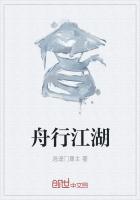He was extremely ridiculous, but he was a good sort of man. Madame, the Infanta, died a little time before, and, by the way, of such a complication of putrid and malignant diseases, that the Capuchins who bore the body, and the men who committed it to the grave, were overcome by the effluvia. Her papers appeared no less impure in the eyes of the King. He discovered that the Abbe de Bernis had been intriguing with her, and that they had deceived him, and had obtained the Cardinal's hat by ****** use of his name. The King was so indignant that he was very near refusing him the barrette. He did grant it--but just as he would have thrown a bone to a dog. The Abbe had always the air of a protege when he was in the company of Madame de Pompadour. She had known him in positive distress. The Due de Choiseul was very differently situated; his birth, his air, his manners, gave him claims to consideration, and he far exceeded every other man in the art of ingratiating himself with Madame de Pompadour. She looked upon him as one of the most illustrious nobles of the Court, as the most able Minister, and the most agreeable man. M. de Choiseul had a sister and a wife, whom he had introduced to her, and who sedulously cultivated her favourable sentiments towards him. From the time he was Minister, she saw only with his eyes; he had the talent of amusing her, and his manners to women, generally, were extremely agreeable.
Two persons--the Lieutenant of Police and the Postmaster-General--were very much in Madame de Pompadour's confidence; the latter, however, became less necessary to her from the time that the King communicated to M. de Choiseul the secret of the post-office, that is to say, the system of opening letters and extracting matter from them: this had never been imparted to M. d'Argenson, in spite of the high favour he enjoyed.
I have heard that M. de Choiseul abused the confidence reposed in him, and related to his friends the ludicrous stories, and the love affairs, contained in the letters which were broken open. The plan they pursued, as I have heard, was very ******. Six or seven clerks of the post-office picked out the letters they were ordered to break open, and took the impression of the seals with a ball of quicksilver. Then they put each letter, with the seal downwards, over a glass of hot water, which melted the wax without injuring the paper. It was then opened, the desired matter extracted, and it was sealed again, by means of the impression.
This is the account of the matter I have heard. The Postmaster-General carried the extracts to the King on Sundays. He was seen coming and going on this noble errand as openly as the Ministers. Doctor Quesnay often, in my presence, flew in such a rage about that infamous Minister, as he called him, that he foamed at the mouth. "I would as soon dine with the hangman as with the Postmaster-General," said the Doctor. It must be acknowledged that this was astonishing language to be uttered in the apartments of the King's mistress; yet it went on for twenty years without being talked of. "It was probity speaking with earnestness,"said M. de Marigny, "and not a mere burst of spite or malignity."The Duc de Gontaut was the brother-in-law and friend of M. de Choiseul, and was assiduous in his attendance on Madame de Pompadour. The sister of M. de Choiseul, Madame de Grammont, and his wife were equally constant in their attentions. This will sufficiently account for the ascendency of M. de Choiseul, whom nobody would have ventured to attack. Chance, however, discovered to me a secret correspondence of the King, with a man in a very obscure station. This man, who had a place in the Farmers General, of from two to three hundred a year, was related to one of the young ladies of the Parc-aux-cerfs, by whom he was recommended to the King. He was also connected in some way with M. de Broglie, in whom the King placed great confidence. Wearied with finding that this correspondence procured him no advancement, he took the resolution of writing to me, and requesting an interview, which I granted, after acquainting Madame de Pompadour with the circumstance. After a great deal of preamble and of flattery, he said to me, "Can you give me your word of honour, and that of Madame de Pompadour, that no mention whatever of what I am going to tell you will be made to the King?"--"I think I can assure you that, if you require such a promise from Madame de Pompadour, and if it can produce no ill consequence to the King's service, she will give it you." He gave me his word that what he requested would have no bad effect; upon which I listened to what he had to say. He shewed me several memorials, containing accusations of M. de Choiseul, and revealed some curious circumstances relative to the secret functions of the Comte de Broglie. These, however, led rather to conjectures than to certainty, as to the nature of the services he rendered to the King. Lastly, he shewed me several letters in the King's handwriting. "I request," said he, "that the Marquise de Pompadour will procure for me the place of Receiver-General of Finances; I will give her information of whatever Isend the King; I will write according to her instructions, and I will send her his answers." As I did not choose to take liberties with the King's papers, I only undertook to deliver the memorials. Madame de Pompadour having given me her word according to the conditions on which Ihad received the communication, I revealed to her everything I had heard.















